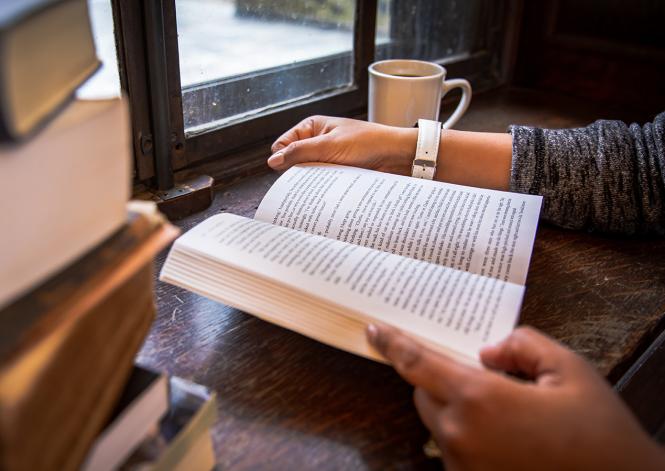
For those of us who have been honored with the opportunity to return on the Adirondacks camping trip as student staff, there’s an opportunity for the returning upperclassmen to give the incoming Freshmen a piece of advice they think is critical for flourishing in Templeton. Invariably, someone will exhort the incoming students to find a church they can call home in their first semester. At Templeton, we spend so much time talking about God that we can forget to talk with God.*
James K.A. Smith addresses the importance of participating in church services frequently in his work, Desiring the Kingdom. In it, Smith assesses the ways that “cultural liturgies” can subconsciously train and form our habits and emotional responses; Smith claims this is why it is so important that the liturgies of the Church “re-form” us, calibrate us, and point our emotional compass back to true north each Sunday. The liturgies of the Church remind us that we are not creatures who perceive only truth, but also goodness and beauty. I am extraordinarily thankful for two practices here at Templeton that recalibrate us in exactly that way: Morning Prayer and Compline.
Twice a week, Dr. Putnam leads Morning Prayer in a small chapel before his Old Testament class. It has proven time and time again to be the best way to start the day, with Scripture and corporate prayer in a community of which we are so blessed to be a part. What better time, and what better place, to lay the day’s tasks before the Lord and pray for Him to give us our daily bread? This consistent practice ingrains in us through standing and kneeling that we are embodied creatures, creatures who rely on the Lord’s daily provision and the work of those students and faculty and staff around us.
Late in the same evenings, you may find some of the same Templeton students together in that same chapel singing Compline, traditional evening prayer. This was initiated by two Templeton seniors, Mary Katherine Bucko and Katarina Rorstrom, who sang it regularly (and beautifully) in their semester abroad in Oxford and wanted to bring the practice back to Templeton. It is entirely student planned and student attended. During this prayer, we confess together our sins and failures of that day and ask for God’s protection over our bodies and souls through the impending night. This immediate cycle of Morning and Evening prayer reminds us that every single day is an unmitigated and extravagant gift. Though our musical talents considerably vary, Compline teaches us to sing together as a unified student body.
A Commitment To Holistic Formation
In encouraging students to live out their faith, Templeton enacts a commitment to the holistic formation of the whole student: not just the mind, but also the heart and soul. This is forming students who find themselves humming and singing, to no one in particular:
“Before the ending of the day,
Creator of the world we pray,
That with thy wonted favour thou
Wouldst be our guard and keeper now”
*Of course, this is not to say that discussing Theology is not conducive to the devotional life. On the contrary, C.S. Lewis states in his essay On the Reading of Old Books that “I believe that many who find that “nothing happens” when they sit down, or kneel down, to a book of devotion, would find that the heart sings unbidden while they are working their way through a tough bit of theology with a pipe in their teeth and a pencil in their hand.”
Micah Skinner is currently a Senior in the Templeton Honors College, studying Mathematics with a minors in Political Science and Astronomy. His other academic interests include computer engineering, film, and philosophy. When he’s not annoying his friends by referencing C.S. Lewis, he spends his free time accumulating rust on his Hebrew vocabulary, reading fantasy novels, and pursuing laughter wherever it may be found.








